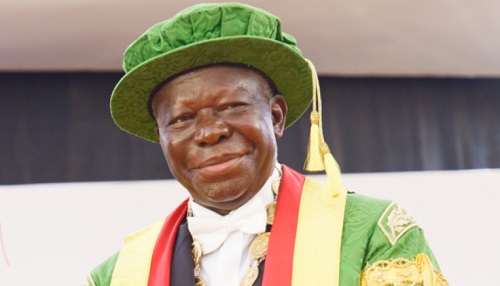The Ghana Revenue Authority (GRA) has completed billing over 10.12 million properties identified across the country for the purpose of property rate collection.
This means that coverage has increased by 8.82 million more properties, up from the 1.3 million that used to pay property rate when it was solely administered by the metropolitan, municipal and district assemblies (MMDAs).
Consequently, lists and details of 15.3 million people associated with the properties have been identified and codified into the unified common property rate platform, Myassembly.gov.gh, to enable property owners, occupants and caretakers to verify and pay their due rates.
This ushers in a new regime where the billing and the collection of property rates will be administered through digitised channels rather than paper distribution of bills and collection of physical cash which were often saddled with bureaucratic and logistical challenges.
Improved collection
The Head of Communications at the GRA Property Rate Project Office, Ernest Adade, who made this known to the Daily Graphic in Accra, stated that the new platform would help to improve revenue mobilisation for the municipal and district assemblies and the country in general.
He said the new regime had changed property rate administration in the country because there was no more distribution of bills on paper, no cash payments and paper receipts.
Instead, Mr Adade said, the platform offered an efficient billing, collection and receipts through an electronic means to help reduce the challenges associated with the previous regime.
“Previously, the mandate to administer property rates and their collection was assigned to the local authorities or assemblies”.
“And so, they will print bills on paper and distribute them to individual homes for payment to be made within a stipulated period under the Local Governance Act, 2016 (Act 936) but very often the process is associated with challenges which impact inflows,” he said.
The Head of Communications said the challenges informed the creation of the common platform for property rate administration to enhance property rate collections and their accountability.
Billable properties
Mr Adade stated that under the arrangement, the revenue collection agency was assisting the MMDAs to execute the mandate by helping to improve collection.
After securing the platform or system between January and March this year, he said, GRA had successfully partnered other stakeholders to identify more than 10.12 million billable properties.
He said the newly identified properties had been pre-populated with over 15.3 million ownership data.
“We have verified that all 10.12 million identified billable properties have been loaded into the system accurately.
We have also confirmed that the 15.3 million individuals and corporate entities associated with the properties have been recorded in the system,” he said.
Mr Adade said the platform had sent messages informing the associates about the properties and invited them to log on to the portal to pay the due amount.
Associate
The Communications Head explained that an associate of a property did not necessarily mean the owner but a person with responsibility over the property such as renters, third party occupiers and caretakers.
He said that the newly identified properties were all billed in May this year, “this was after the Land Valuation Division (LVD) and the MMDAs had provided a value and rate impost, respectively, for all the properties.
“We are now at the position where every person who owns a property in Ghana which is immovable has been billed to pay their property rate through the portal, Myassembly.gov.gh,” Mr Adade added.
Sole platform
The Head of Communications stated that the platform, which was linked to the Ghana.gov.gh payment platform, was now the sole payment platform for the payment of property rate with effect from January 2023.
With the system in place, Mr Adade said the country was expected to generate more than GH¢1.77 billion a year from property rate instead of the GH¢56 million raised when only 1.3 million properties were contributors.
The data, he added, had made the system more efficient compared to the period when the various MMDAs were administering the collection.
Enforcement
Mr Adade maintained that the law stipulated that an owner or associate of a property had a period of 52-days to pay off the bills.
“The 52-day moratorium starts from the exact day the bill was inputted into the system and not the day the owner, caretaker and occupant saw the bill”.
“Beyond identifying the properties and billing them, people should know that ignorance of the law is no excuse and that is why we are urging them to log on to the platform to access and pay because there will soon be enforcement,” he said.
Mr Adade said the law prescribed that a property must be auctioned should the owner refuse to pay property rate within the stipulated period.
He urged MMDAs to assist by educating the public on the new property rate regime to increase compliance in order to boost their revenue.
SOURCE: GraphicOnline








